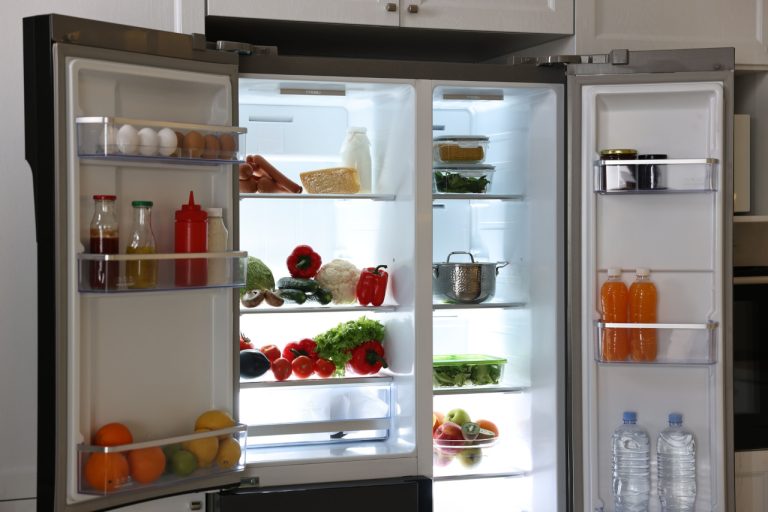Brewing a fresh cup of tea can be a delightful experience, but sometimes we end up with more tea than we can drink in one sitting. Although storing the surplus tea in the fridge seems like a good idea, many people wonder how long tea might last in the fridge.
This article explores the shelf life of refrigerated tea and offers tips on how to best preserve its flavor.
Table of Contents
The Shelf Life of Tea
Freshness Factors
The longevity of tea in the fridge depends on various factors including the type of tea, how it’s brewed, and how it’s stored. Typically, brewed tea can last in the fridge for up to five days. However, this time-frame can vary.
We have found that tea quickly loses quality when refrigerated and is typically only “good” for about a day, although it could be deemed of acceptable quality for approximately 2 to 3 days.
Black, Oolong, Green, and Tisanes
Black teas and roasted oolong teas, which are fully or partially oxidized, tend to last longer than herbal teas. This is due to their natural oxidation process that imparts a certain level of preservation.
Lighter teas, such as green tea, or tisanes, are more delicate, and they may start losing their flavor sooner.
Storage and Containers
How tea is stored in the fridge greatly affects its shelf life. Using an airtight container is important to prevent the absorption of other food odors. Glass or BPA-free plastic containers are good options. Also, ensure the tea is cooled to room temperature before refrigerating to avoid condensation, which can dilute and spoil the tea faster.
Factors Affecting Tea Quality
Microbial Growth
Tea lacks the preservatives found in many beverages, making it susceptible to microbial growth. While refrigeration slows down this process, it doesn’t stop it entirely. After a few days, bacteria and mold can start to develop, especially if the tea contains added sugars or fruit pieces.
Flavor Degradation
Even if tea doesn’t show signs of spoilage, its flavor and aroma can degrade over time. This is particularly true for delicate teas like white, green, or even lightly oxidized oolong teas.
To enjoy the best taste, consume these teas within 1-2 days of brewing.
Maximizing Tea Shelf Life
Proper Brewing Techniques
The way tea is brewed can also impact its shelf life. Over-brewing or using water that is too hot can cause bitterness and astringency, which may become more pronounced over time. Brewing tea at the correct temperature and for the right duration can help assure it maintains a reasonable level of quality in the fridge.
Additives and Enhancements
Adding milk, sugar, or lemon to tea before refrigerating can shorten its shelf life. If you plan to add these enhancements, consider doing so immediately before drinking the tea, rather than before storing it.
Signs of Spoilage
It’s important to recognize the signs of tea that has gone bad. A sour or off smell is a clear indicator. If the tea appears cloudy or has a thick consistency, it’s best to discard it. Visible mold growth is another obvious sign that the tea should not be consumed.

